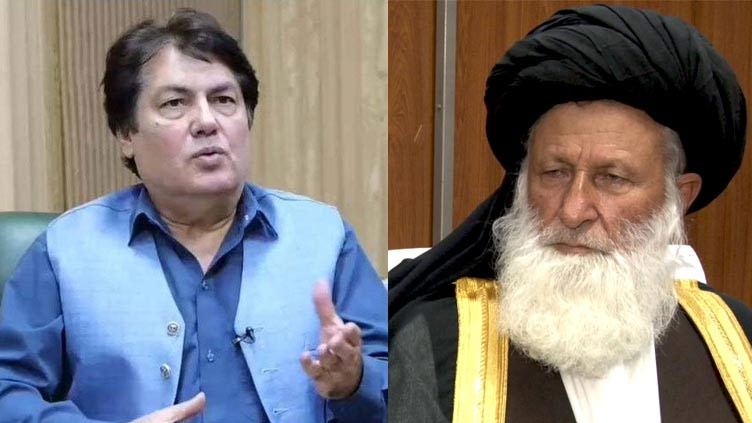- Rawalpindi receives highest rainfall; water level surges in Nullah Lai.
- Buses collide on Islamabad-Peshawar Motorway.
- Army called in to assist Rawalpindi district administration.
ISLAMABAD: As many as 13 people were reportedly crushed to death in separate incidents of walls collapse in Islamabad on Wednesday due to heavy monsoon rains in the federal capital and Rawalpindi.
Torrential rains continue to lash the twin cities as the monsoon currents from the Arabian Sea intensified today as forecast by the Pakistan Meteorological Department (PMD), with the highest, nearly 200 millimetres, rainfall in Rawalpindi.
Police said that 12 people were killed when the wall of an under-construction bridge came crashing down on them near Golra Mor, Peshawar Road in Islamabad.
They said the wall was 100-foot wide and 11-foot high, under which the labourers had set up a tent to live at the construction site.
The rescue teams reached the site of the incident as soon as they received the report, Rescue 1122 officials stated.
Police said that the rescue workers pulled bodies out from the wall’s debris with the help of machines. Search for more people likely to be stuck under the rubble is underway, with four being rescued alive so far.
Meanwhile, an 11-year-old girl was killed in a similar wall collapse incident in Mohammadi Town within the jurisdiction of Khana Police Station of Islamabad.
In a separate rain-related incident, several people were injured when two buses travelling via Islamabad-Peshawar Motorway barreled into each other after losing control due to a slippery road amid a downpour.
Rescue 1122 said that their teams are working to aid the injured while the severely injured are being shifted to hospitals in Wah Cantt and Taxila.
As per Met Department, Shamsabad received up to 188 millimetres of rainfall. It poured up to 110 millimetres in Chaklala, 138 millimetres in Bokra, 102 millimetres in Golra, 98 millimetres at zero-point, 79 millimetres in Kachehri, 64 millimetres at Islamabad airport, and 44 millimetres in Saidpur.
The water level in Nullah Lai rose dangerously high, 14 feet near Katarian and 11 feet near Gawalmandi due to incessant rains, with army troops called in for rain emergency services.
Authorities rang sirens of threat to alert the residents in the surroundings and advised them to evacuate. Meanwhile, Rescue 1122 has also been alerted in Rawalpindi.
Punjab CM orders water drainage from low lying areas
Taking the risks into account, Punjab’s interim Chief Minister Mohsin Naqvi directed the Pakistan Disaster Management Authority (PDMA) officials to drain rainwater accumulated in the low lying areas of Rawalpindi.
He ordered emergency steps to be taken in this regard and a progress report should be submitted in the CM office.
Meanwhile, Water and Sanitation Agency (WASA) Rawalpindi was also put on high alert to cope with urban flooding while a rain emergency was declared directing the residents settled along Nullah Lai and in low-lying areas to move to safer places, WASA managing director said.
He said that WASA personnel were deployed in different city areas along with heavy machinery, particularly at low-lying areas including Raja Bazar, Bohar Bazar, Jamia Masjid Road, Murree Road, Nadeem Colony, Javed Colony, Sadiqabad, Satellite Town and other areas.
Water level in Nallah Lai was being monitored regularly, he added.


 Latest News3 days ago
Latest News3 days ago
 Latest News3 days ago
Latest News3 days ago
 Latest News3 days ago
Latest News3 days ago
 Latest News3 days ago
Latest News3 days ago
 Latest News3 days ago
Latest News3 days ago
 Latest News3 days ago
Latest News3 days ago
 Latest News3 days ago
Latest News3 days ago
 Latest News3 days ago
Latest News3 days ago












